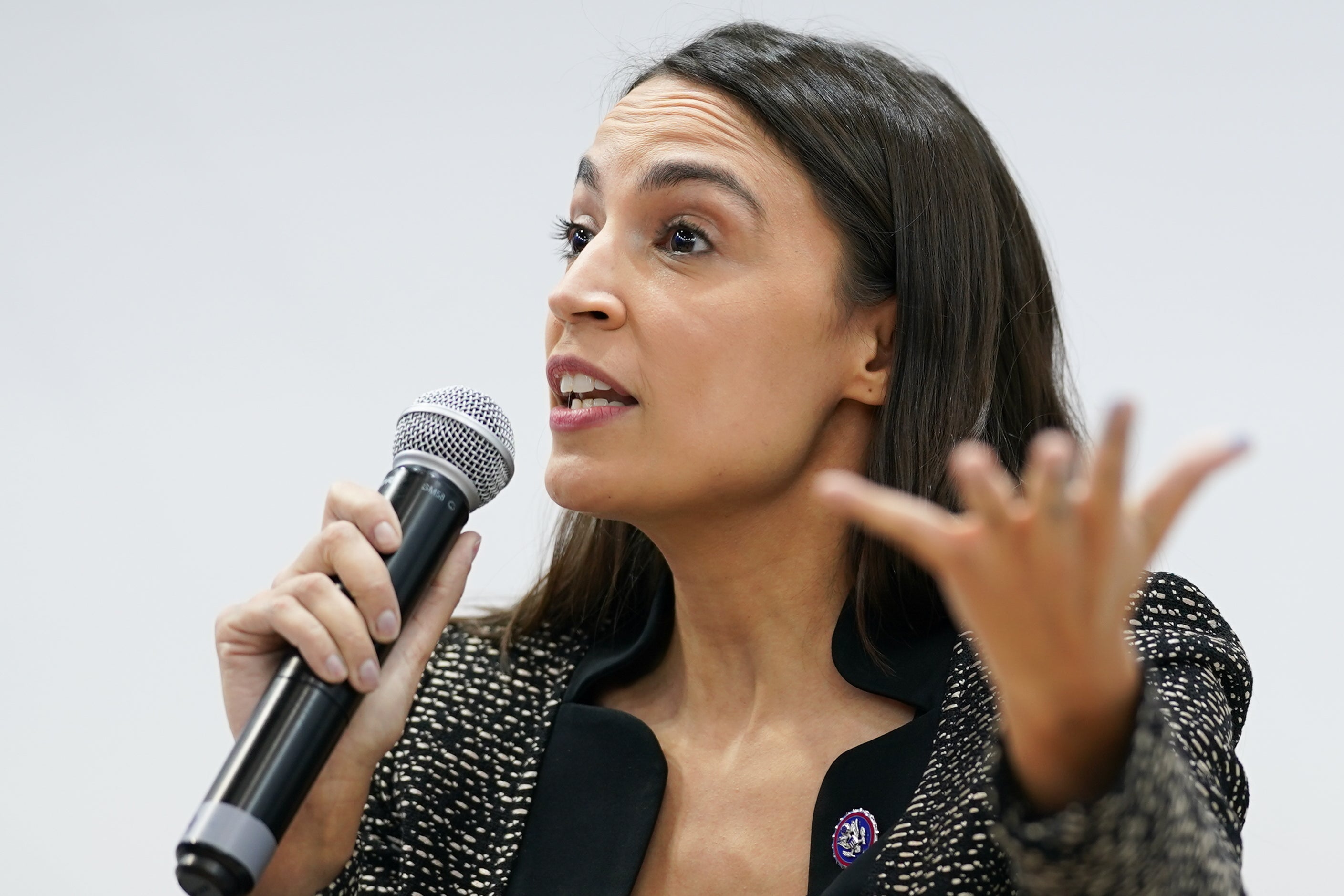AOC and Ilhan Omar don’t agree on new gun legislation. This is why
The diverging approaches may reflect the different spots occupied by the two members


Your support helps us to tell the story
From reproductive rights to climate change to Big Tech, The Independent is on the ground when the story is developing. Whether it's investigating the financials of Elon Musk's pro-Trump PAC or producing our latest documentary, 'The A Word', which shines a light on the American women fighting for reproductive rights, we know how important it is to parse out the facts from the messaging.
At such a critical moment in US history, we need reporters on the ground. Your donation allows us to keep sending journalists to speak to both sides of the story.
The Independent is trusted by Americans across the entire political spectrum. And unlike many other quality news outlets, we choose not to lock Americans out of our reporting and analysis with paywalls. We believe quality journalism should be available to everyone, paid for by those who can afford it.
Your support makes all the difference.Representative Alexandria Ocasio-Cortez has expressed concern about the recent deal announced by a bipartisan group of Senators to combat gun violence. Ocasio-Cortez spoke to reporters before votes Monday evening and said she was specifically worried about with what she said was “juvenile criminalization”.
First, some context. On Sunday, a bipartisan group of 20 Senators led by Democratic Senator Chris Murphy of Connecticut and Republican Senator John Cornyn of Texas announced a framework for legislation to combat gun violence. Though there is no legislative text yet, part of the framework includes an investigative period to review juvenile and mental health records for potential gun buyers younger than 21, including a check on state databases and local law enforcement.
“I want to explore the implications of that and how specifically it is designed and tailored,” AOC told me. Ocasio-Cortez added that after the 1999 Columbine school shooting, “we hired thousands of police officers into schools and while it didn’t prevent many of the mass shootings that we’ve seen now, it has increased the criminalization of teens in communities like mine.”
Conversely, fellow Squad member Representative Ilhan Omar, the whip of the Congressional Progressive Caucus, took a more wait-and-see approach.
“I don’t think so, because the criminal background check is about preventing them from obtaining weapons,” Omar said in response to concerns about criminalization. “And we certainly do not want weapons in the hands of juveniles to begin with, and we certainly don’t want them in the hands of someone who’s exhibiting criminality.”
When Politico’s Jordain Carney (a friend of your reporter) asked about the spending for student resource officers, Omar said: “We will see what the legislation actually says, right, with the language.” She also insisted she doesn’t want to get to a point where teachers are armed.
The diverging approaches may reflect the different spots occupied by the two members, who came to Congress at the same time.
Where Ocasio-Cortez is one of the most visible national politicians on the left, Omar, as whip, is in charge of the caucus as a whole. That means she’s setting the standard for what it means to be a progressive. Grace Segers of The New Republic wrote last year about how Omar was responsible for setting those new standards because members of the CPC have to vote with the caucus two-thirds of the time to be in good standing.
Many members of Omar’s caucus might be open to voting for the legislation, so she will want to hold off on laying down a red line for the time being. But the fact is that Democrats only have a 12-seat majority in the House. Last week, when they held a series of votes on gun legislation, only five Republicans joined them.
That means that they have a tight margin in both chambers – and any progressive defections might lead to a cascade.